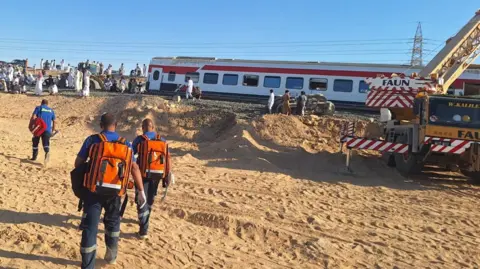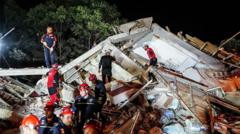In the past 11 days, the Tokara Islands, a remote and sparsely populated chain in southwest Japan, have been rocked by a staggering number of earthquakes, surpassing the local population of approximately 600 residents. The U.S. Geological Survey noted a particularly notable 5.6-magnitude earthquake on Wednesday, part of a chain of over 870 tremors recorded by the Japan Meteorological Agency since June 21. Each of these quakes had a magnitude of at least 1.5 on the Japanese scale, indicating they were strong enough to be felt intermittently by the inhabitants.
The tremors are causing considerable disruption to life on the islands, which are known for their volcanic origins and appeal through natural hot springs. Although the region is accustomed to seismic activity, the current frequency of quakes has been pronounced even by Japan's standards. The Japan Meteorological Agency (JMA) has yet to offer a definitive cause for the increased seismic activity, though they noted that such patterns can sometimes precede the formation of new volcanic land masses—a phenomenon witnessed two years ago near Iwo Jima.
Given the remote location of the Tokara Islands, which requires over six hours of ferry travel to reach the largest island, Nakanoshima, emergency response efforts are challenging. Helicopter evacuations are often necessary for immediate aid. While no tsunami risk has been identified, authorities are warning residents about potential dangers such as falling rocks and landslides. As a consequence of the continuous shaking, residents of Akusekijima have expressed sleep deprivation and anxiety pertaining to the quakes.
As of now, the population remains vigilant and prepared, drawing on Japan's extensive experience with disaster management. Nevertheless, the absence of clear answers regarding the seismic surge adds to the unease felt by those living in this beautiful yet precariously positioned archipelago.



















